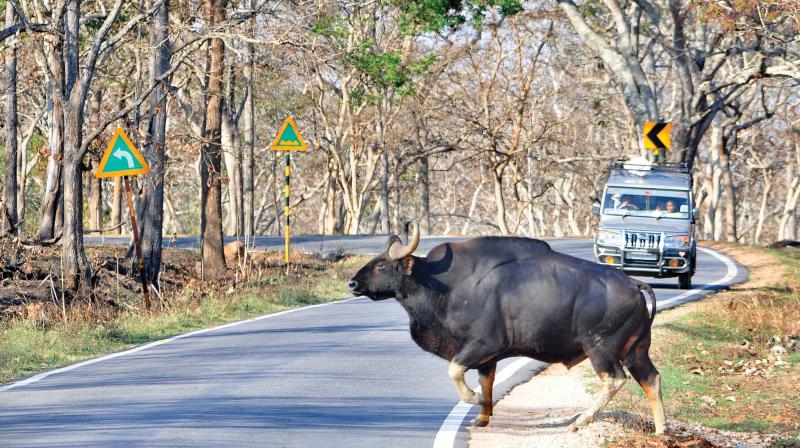Keep night ban, declare Bandipur a natural heritage site
The Bandipur Tiger Reserve should be left alone from any form of human interventions so as to retain and bring back the pristine and fragile ecology.

There are more than 2,00,000 protected zones across the world today, spanning almost 17% of land surface area and around four percent of the oceans. These protected areas host some of the most significant and globally important species that are essential to maintain the ecological balance of this planet. And responsible tourism plays an important role in promoting these areas, as well as garnering more support towards protecting and promoting them. This form of responsible tourism, Ecotourism, stands for a new symbiosis between humans and the natural environment. However, managing the development of the ecotourism industry and other forms of sustainable and responsible tourism in other spots, is of the essence. It involves setting up control over the flow of tourists, including setting up regions that serve different categories of tourist concentration, and establishing necessary tourist infrasctructure for a protected area that is tailored to its individual characteristics.
It is mostly observed that tourists end up visiting areas that have a network of eco-trails, nature trails, accommodations and other amenities. On the other hand, areas with highly available valuable flora and fauna do not have the same amenities and are strictly considered nature reserves, not meant for any form of entertainment. Managing tourists and minimising their impact on the environment and ecology, largely focuses on appropriate planning and management by concerned authorities who manage protected areas and who work closely with the local government agencies and the local community.
In the true sense, Ecotourism in protected areas should address the major forms of development - environmental, community and economic. Environmental issues focus on protecting the ecology and landscape in the long term and creating an overall atmosphere of support for protected areas among the local community and visitors. Ecotourism can also address community issues by encouraging tourists to stay in local accommodation (home-stays), thereby improving the livelihoods of the local community, which will eventually spread the principles of sustainable tourism and society can reap benefits from these protected areas. A focus on economic issues will help address unemployment and raise funds for conservation. Town and local government authorities lying within the boundaries on in buffer zones surrounding protected areas increasingly see the benefits for the local economy and community, a perk of being in a unique location. Ecotourism, developed parallel to other forms of sustainable tourism and in combination with organic food production, traditional and artistic crafts can be a powerful impulse for reinforcing the strategy of environmentally-friendly economic growth.
All said and done, protected areas can function properly only if their management is interlinked with local, national and international socio-economic and political developments. Protected areas cannot function in isolation from local development strategies and broader policy framework that support sustainable development and those that impact areas and population where they are located. Developing and managing protected areas should go hand-in-hand with creating opportunities and meeting the needs of local communities and the society at large.
This is precisely the reason why Bandipur Tiger Reserve should be left alone and free of all sorts of human interventions. The ban on plying of night traffic through the Tiger Reserve should stay; and if at all it is extremely necessary to allow night traffic then the alternate road should be developed. The alternate road which is the Moolankavu-Valluvadi-Chikkabargi-Begur towards Gundlupet will pass through only nine kilometers of forest area and just six kilometers in the Tiger Reserve and that too towards one side of the critical Tiger habitat. The Bandipur Tiger Reserve which is also one of the oldest protected areas in the country should only serve the purpose of preserving, promoting and popularizing Ecotourism in the true sense. The Bandipur Tiger Reserve should be tagged as a Natural Heritage Site so that conservation and ecological restoration activities gain momentum and popularity.
The Bandipur Tiger Reserve should be left alone from any form of human interventions so as to retain and bring back the pristine and fragile ecology that are responsible in sustaining our lives and livelihoods, not just for us, but for the future generations too…

